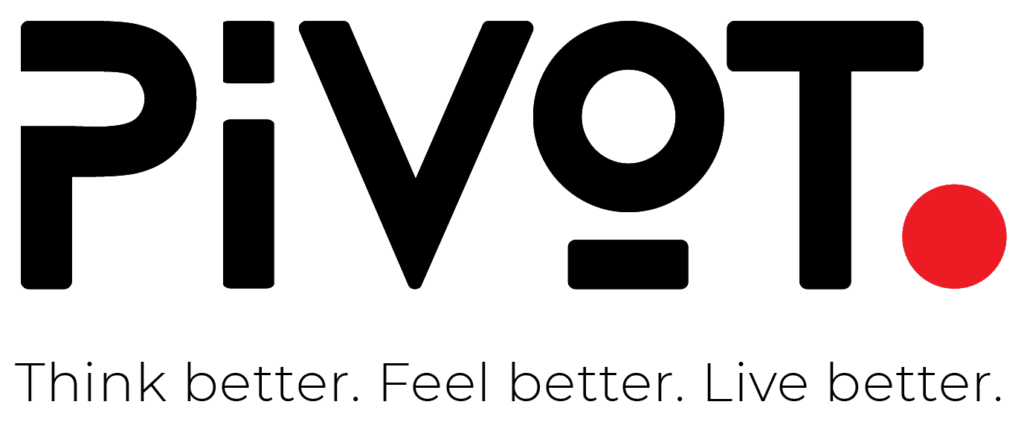Emotional closeness is the defining trait of every family and is essential for the overall well-being of each member. In healthy doses, it is a force of empowerment, fostering personal growth, individuality, and autonomy.
However, this also implies that there is such a thing as an unhealthy dose of closeness, and it often takes the form of familial enmeshment. This harmful relationship dynamic can impede personal development in virtually every way.
Moreover, enmeshment is not only a hindrance across various aspects of relationships; it can also impose challenges that extend far beyond the typical familial bonds. Even dating someone with an enmeshed family can be as detrimental as being a part of one.
Due to the sheer destructive potential of this phenomenon and the high chance of it leaving lasting consequences, especially for children, it is imperative to learn to recognize the signs of an enmeshed family and take the steps necessary to address them.
What Is An Enmeshed Family?
In modern psychology, familial enmeshment is a framework used to describe a family system or dynamics characterized by:
- Blurred or porous boundaries;
- Confused roles and expectations;
- Limited individuality and personal autonomy;
- Emotional over-identification among its members.
In these families, there’s often a high degree of emotional fusion, where others closely mirror the feelings of one family member. This typically creates an environment (system) with an extreme level of interconnectedness, in which the thoughts, feelings, and behaviors of individual family members become indistinguishable from one another.
While closeness in familial relationships is empowering and elevating, when taken to the extreme, it becomes the polar opposite. This is the case with enmeshed systems, which are known to hinder the development of personal identity and autonomy.
These characteristics are salient in children who are a part of or originate from enmeshed families and can persist into adulthood if not addressed. However, parents and other family members can exhibit these traits with the same and, sometimes, greater intensity.
The last thing to note is that the prevalence and intensity of familial enmeshment aren’t set values. They can vary depending on the influence of factors such as family history, societal/cultural norms, communication styles, and personality traits.
The complexity of named factors, along with their sheer volume, makes recognizing and addressing the signs of enmeshed family extremely challenging without a professional therapeutic approach.

What Are The Signs Of An Enmeshed Family?
Family enmeshment can manifest itself in numerous ways and its signs can be challenging to recognize, mostly because they share similar characteristics with some psychological disorders such as codependency or attachment dysregulation.
Therefore, to minimize the chance of confusion and make the signs easier to distinguish from said issues, we’ll be splitting them into two distinct categories (parental and child enmeshment), with enmeshed family examples after each for added clarification:
Parental Enmeshment
Enmeshed parents may exhibit the following behaviors/traits:
- Disregard for individual autonomy: Difficulty respecting or recognizing the independence of a child.
- Example: A parent makes decisions for their children without consideration of their needs, desires, or preferences.
- Over-involvement: Compulsion to know and influence every detail of a child’s life.
- Example: Constantly monitoring and dictating the course of the child’s romantic relationship.
- Blurred boundaries: Limited ability to establish a definitive parent-child dynamic within a family unit.
- Example: Sharing inappropriate details about personal life with a child.
- Emotional fusion: Mirroring the emotional state of the child, even to the point of extreme.
- Example: Feeling deeply stressed or anxious when a child faces challenges, whether at school, work, or personal.
- Over-identification: A parent ties their self-worth to that of their child.
- Example: Pressuring a child to pursue a parent’s unfulfilled aspirations.
- Isolation: Believing they can provide every form of support to their child.
- Example: Discourage a child from reaching out to anyone outside the established (enmeshed) circle.
Child Enmeshment
Children from enmeshed families may exhibit the following signs:
- Limited individuality: Not having a clearly defined sense of self; feeling like being lost;
- Example: A child adopts the interests or goals of the parent rather than exploring their preferences.
- Caregiving tendencies: Feeling overly responsible for the welfare of others;
- Example: A child feels obligated to solve their parents’ problems, neglecting their well-being.
- Over-dependence: Basing self-worth on the opinions of their enmeshed parents;
- Example: Feeling an overwhelming need for approval and validation from parents.
- Lack of autonomy: Acting or behaving in ways that align with parent’s expectations.
- Example: Pursuing the unfulfilled aspirations of the parent despite not sharing their interests.
- Conflict avoidance: Keeping away from any confrontation out of fear of disrupting the illusion of a harmonious family dynamic; not knowing how to say “no”;
- Example: Consistently refraining from expressing own opinions and, instead, conforming to parents’ viewpoints.
- Struggling with personal boundaries: Difficulties maintaining personal space and privacy.
- Example: (Over)Sharing inappropriate details about their intimate relationships with anyone, even recent acquaintances.
It should be noted that familial enmeshment is highly individual. The intensity can vary and the signs can manifest to differing degrees, depending on numerous factors such as personality traits, upbringing, cultural influences, and life experiences.
This is why addressing the issue must be done on a per-person basis and one step at a time, using methods tailored to the individual and strategies that consider each characteristic.
What Does An Enmeshed Mother Look Like?
An enmeshed mother (or parent, in general) may exhibit one or more of the abovementioned traits and behaviors. For her, a child is the center of her universe and the object upon which she bases her self-worth. However, this often goes to the extreme, where a child becomes their “best friend” and confidant, as well as the source of emotional support.
In addition, she may tend to be overly involved in their children’s lives. This includes trying to make every decision for them, intervening in their affairs, and demanding to know every little detail, even if sharing those details would be inappropriate.
Next, she would often try to imprint her beliefs, morals, personality, and even goals onto the child, pushing it in the direction she considers “right” – even if the child does not share in her views and interests.
Lastly, an enmeshed mother may actively try to dissuade the child from pursuing their goals, asserting their needs, or realizing autonomy in any other way. However, doing so effectively fosters mutual dependency, in turn hindering the personal growth and development of both individuals.

Are Enmeshed Parents Narcissistic?
There’s no simple “yes” or “no” answer to this question, as narcissism and enmeshment are two distinct concepts:
- Enmeshment refers to interpersonal dynamics within a family, friendship, romantic partnership, or even professional relationship;
- Narcissism is a personality trait or disorder characterized by patterns of grandiosity, entitlement, arrogance, lack of empathy, and pervasive need for admiration.
While they occur independently, enmeshment and narcissism can coexist, with the latter typically contributing to the enmeshed family dynamics. The reason for this lies in one of the defining characteristics of narcissism: blatant disregard for personal boundaries and autonomy, which can reinforce enmeshing dynamics.
Alternatively, enmeshment can be used as a manipulation tool by a narcissistic partner or parent to foster dependency and elicit caregiving behavior that would benefit none other than the manipulative narcissist at the expense of the other person’s well-being.
It must be noted that not all enmeshed individuals are narcissistic by default, and not all narcissists necessarily create enmeshed family dynamics. However, they do play into each other, generally enforcing harmful and toxic behaviors to the detriment of all individuals in a relationship.
PIVOT Holds The Key To Overcoming Familial Enmeshment
Whether you’re dating someone with an enmeshed family or you are a part of one, know that the means to liberate yourself from the chains that bind you are within reach. Here at PIVOT, you can find the strength and gain the skills to reclaim your individuality and autonomy.

Of course, you won’t be alone on this journey. Our mindful and experienced personal coaches will be there to offer guidance and support every step of the way, ensuring your transformation is healthy, filled with positivity, and in line with your unique needs.Reach out today to secure your spot at our state-of-the-art Glass House Retreat and embrace the future brimming with fulfilling relationships!
